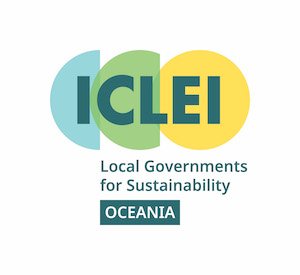Exploring Just Transitions in Net-Zero Construction
ICLEI Oceania recently hosted a thought-provoking webinar on Just Transitions in the built environment, which took place on March 29th, 2023. The event proved to be an informative and engaging technical assistance session covering various themes on sustainable construction and just transitions. Tailored specifically for Global Covenant of Mayors for Climate and Energy (GCoM) signatories and CitiesRacetoZero (CRtZ) participants, the hour-long event attracted over 80 participants consisting of local government leaders, and community members who are interested in learning about net-zero construction and just transitions.
Sharin Govender, initiated the segment, emphasizing the point that a transition to a net-zero carbon built environment will have unavoidable social and economic impacts. She highlighted the importance of managing this transition effectively to prevent it from becoming a polarizing subject. At an organizational level, ICLEI has commissioned guidelines on socially equitable transitions, emphasizing the crucial role of Local Governments in ensuring just transitions. These guidelines encompass various aspects, including:
1. Prioritizing equitable access to resources, services and infrastructures.
2. Designing programs with rather than for residents.
3. Delivering equitable opportunities through employment, market and training.
By following these guidelines, local governments can foster a just and equitable transition to renewable energy, ensuring that the benefits of clean energy are shared by all members of the community and that no one is disproportionately burdened or excluded from participating in the sustainable future.
Cr Nicholas Reece, Deputy Lord Mayor of the City of Melbourne, highlighted the social justice aspects of climate change, emphasizing the need to protect vulnerable communities and build social resilience. The City of Melbourne has declared a climate and biodiversity emergency, incorporating the United Nations Sustainable Development Goals (SDGs) into their planning, reporting, and investment priorities. They aim to address environmental, health, human, economic, and justice indicators through a holistic reporting framework. Additionally, the City recognizes the importance of planning reforms, as demonstrated by their adoption of the Sustainable Building Design Amendment plan, which focuses on improved building performance, reduced emissions, and creating a more livable city.
Professor Peter Graham from Monash University spoke about turning just zero emissions precincts into actionable plans and policy reforms. Monash University's research on life cycle assessments in the built environment and their involvement in people-centred precinct planning contribute to achieving the SDGs. There have been numerous collaborations and interactions in both the private and public sectors to catalyse this kind of bottom-up research, particularly with housing beneficiaries. Prof Graham presented some of the outcomes of research on the affordable housing program in India and Indonesia, which revealed that designs often overlook the comfort of beneficiaries, which can lead to vulnerable communities being trapped in various social issues, including domestic violence.
Is your local government ready to embark on the journey towards a net-zero future? Visit ICLEIOceania.org to find out how or reach out to us at Admin.Oceania@ICLEI.org for more valuable resources. Together, we can make a sustainable and resilient future a reality.
Article written by: Sharin Govender
Edited by: Dustin Cutler
